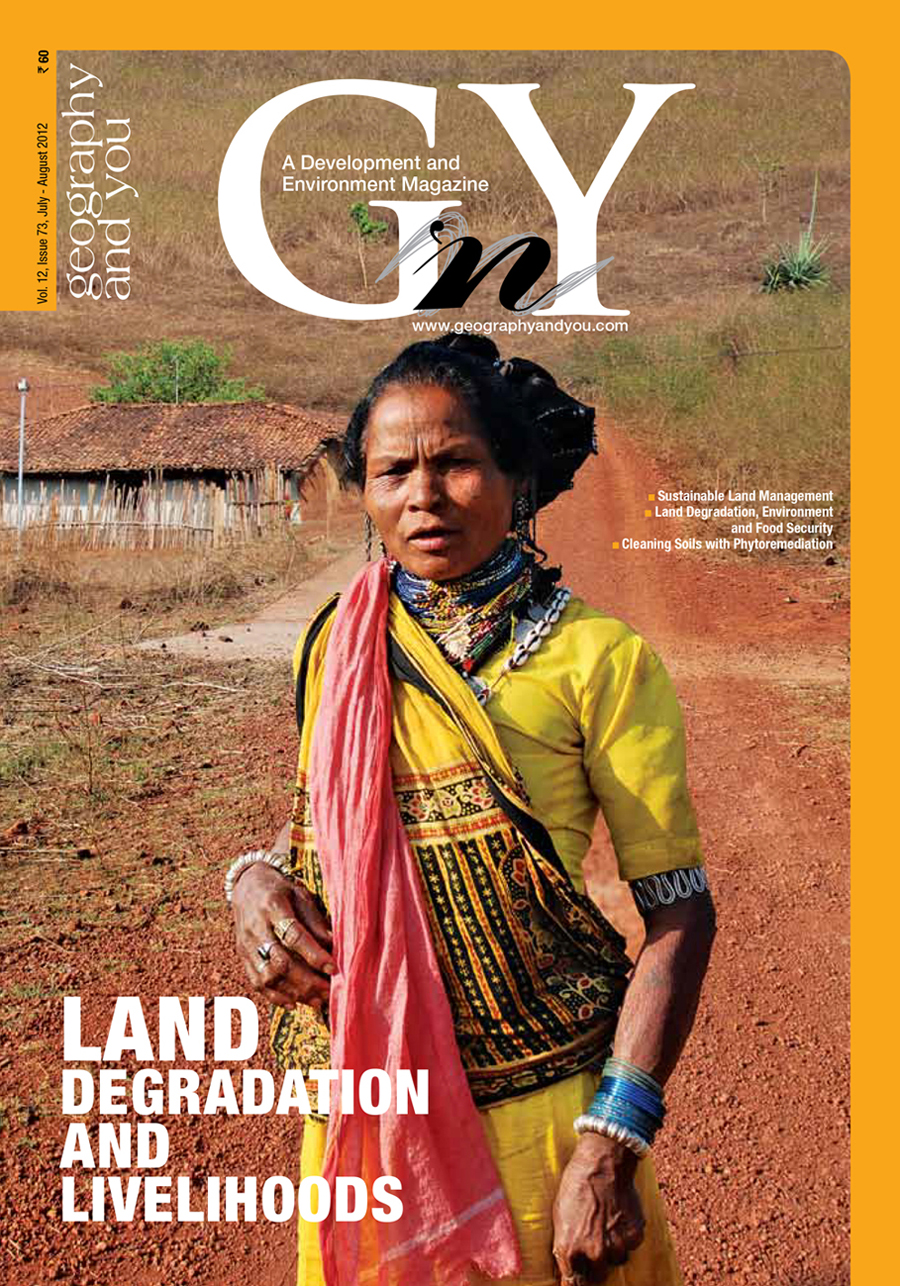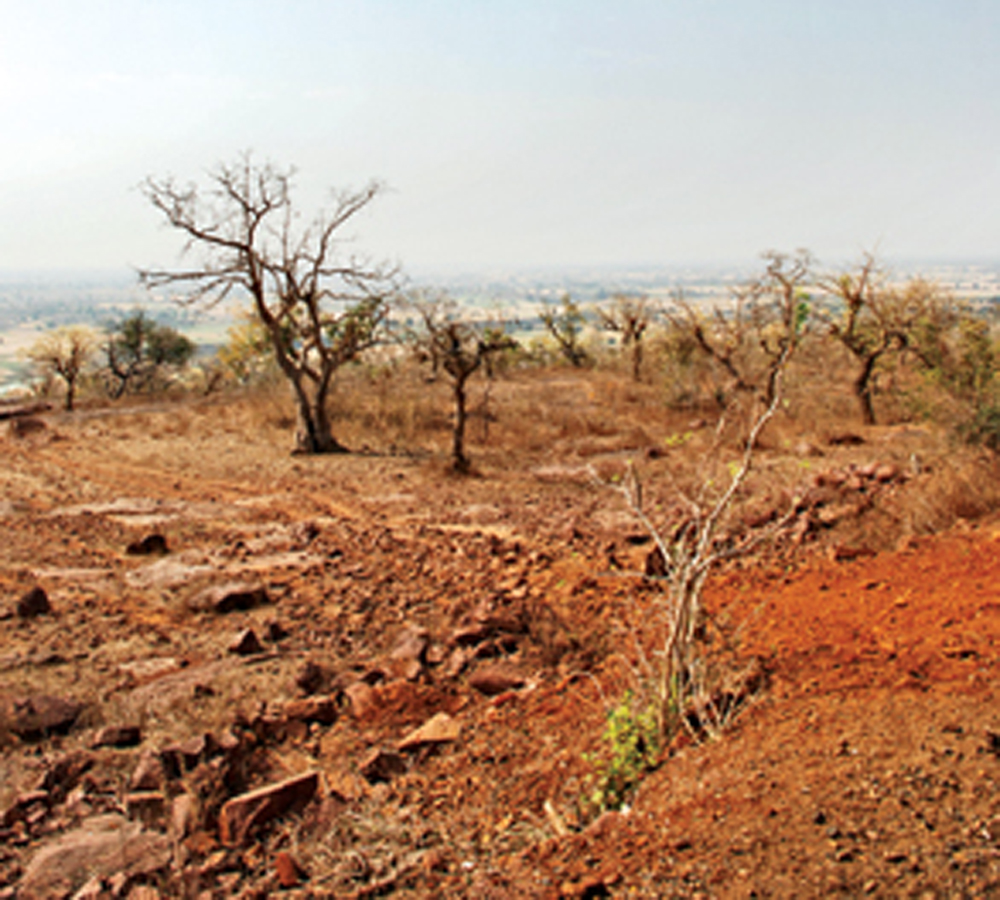
Inside this issue
Lands of India
In developing countries like India, land degradation has been hastened in recent times due to burgeoning population and the amplified exploitation of natural resources. Land degradation undermines livelihood opportunities - triggers poverty, migration and food insecurity.
India accounts for about 2.4 per cent of the world’s geographical area but supports about 17 per cent of the world’s human population and more than 15 per cent of its livestock.
Heavy metal pollution has led researchers to look for its containment in various ways. Of the several chemical and physical technologies available, phytoremediation, the use of plants to remediate environmental media, is being pursued as a new approach to low cost cleanup of contaminated soil.
With increasing degradation of environment and bottlenecks in the implementation of policies and laws, there is a need for awareness and proactive thinking among the masses. Here is an update on some of the contemplative issues that caught our attention.
Waste Management
Waste can be a resource instead of being the increasing solid, liquid and gaseous burden that it has become. Urban solid or liquid waste management is considered as one of the most recognised, serious and immediate environmental risks confronting municipal authorities in developing countries.
Increasing urbanisation and changing lifestyles are generating an enormous quantum of waste that small or even big cities cannot manage independently. To meet the challenge, a regionally organised management of solid waste has been under consideration in our nation. Economy of scale along with pulled professional, technical and human expertise makes such an option viable.
The growing economy along with emerging industries generates hazardous waste which if not managed can pose to be a serious health hazard. Various strategies put forward by the Ministry of Environment and Forests in terms of regulatory and institutional framework, technical guidelines, identification, treatment and disposal to manage such waste are in place, but they require effective implementations.
The growing urban population and the developmental activities in rural India, both exert pressure on water supply and sewage systems. The existing infrastructure is incapable of meeting the ever-increasing demands for domestic as well as industrial water. The author argues that a judicial use of appropriate technologies is the answer to overcome the problems.
India's Outdoors
An energetic bunch of 32 trekkers left the slopes of Sonamarg a week earlier, weathered trials and tribulations to emerge humbled by the sheer majesty of Kashmir’s beauty.
With the increase in demand, withdrawal of groundwater has increased manifold over past few decades resulting in the long-term decline in groundwater levels. A higher rate of withdrawal over several years with heavy pumping coupled with rapid urbanisation has reduced the natural recharge of aquifers. Rainwater harvesting and guiding the non committed surface runoff to a depleted aquifer are ideal solutions for mitigating the problem.
LIGHTS opened its doors to the most interested and vibrant school teachers of Karnataka, Madhya Pradesh and Gujarat, to train them and through them the GenX, about the dynamical GIS, GPS and remote sensing techniques.
In brief
Waste management is an essential and basic service that needs social engineering and technical interventions. We need to streamline waste management policies in the country for the upkeep of an environmentally sound nation. As responsible citizens we are demanded to recycle and reuse-and keep a lookout for illegal and unhealthy dumping practices.
Land is said to be degraded when the soil suffers from decline or loss in its productive capacity. It is estimated that one-sixth of the world’s soils has already been degraded by water and wind erosion. This has two important consequences: a) the reduced ability of society to produce sufficient f
Dear readers Humans are irrational creatures - knowingly we pollute, degrade and destroy the very resources that sustain us. I understand that poverty, population and environment just don’t add up, but what’s worrisome is that the poor actually have no means (credit, insurance, access and right

